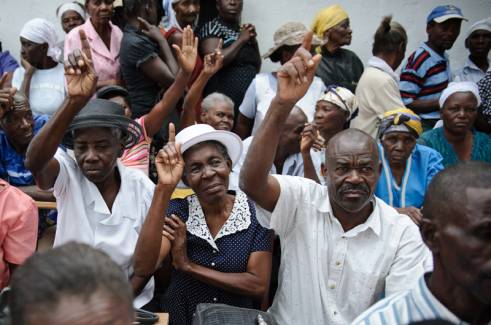By Beth Howgate
At the Cartagena Data Festival next week, HelpAge International is calling on data specialists to explore the implications of the missing data making millions of older people invisible.
“Data gaps reinforce the discrimination felt by older people and fail to build on the needs of this growing group,” said Jane Scobie, Director of Advocacy and Communications at HelpAge International.
“Reporting on HIV and AIDS focuses on people aged 15-49, yet 14% of people in Africa living with HIV are over 50. The proportion is around 50% for the US.
“Data sets should be disaggregated by age and gender, from birth to 100, in five year intervals,” said Scobie.
Importance of data in the SDGs
Lack of data on older people means policy makers are unaware of the challenges facing this group and the best ways to support them.
For example, little is known about older people’s access to anti-retroviral therapies for HIV.
“Population ageing is happening in all regions of the world but by 2030, when the Sustainable Development Goals (SDGs) end, there will be more people aged 60 and over than children under 10,” said Scobie.
“Despite the mention of ‘all ages’ in the goals there are limited mechanisms to monitor progress on older people,” she said.
The event at Cartagena
HelpAge International will host two panel discussions at Cartagena, chaired by representatives from CIVICUS and the United Nations Development Programme (UNDP).
The first panel will review the progress on data on older people including the Global AgeWatch Index.
The Index highlights the challenges in collecting age-disaggregated data. Only 11 countries in Africa could be included due to data gaps.
The second discussion will look at citizen generated data and local data collection to enrich existing national statistics.
Counting the uncounted
Organisers of Cartagena believe that currently the world knows “the least about the people who have the least”.
The festival will attempt to tackle this barrier to development.
“Lack of data will hinder policies for older people and future generations of over 60s unless we ensure older people count now,” said Scobie.
You can follow the conversations on the day and throughout the festival on Twitter through the hashtags #data2015 and #CartagenaDataFest.
